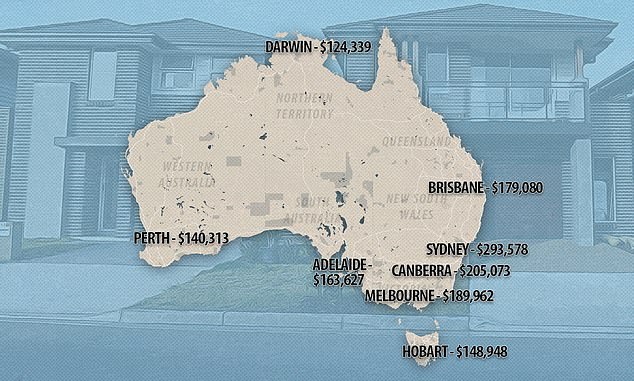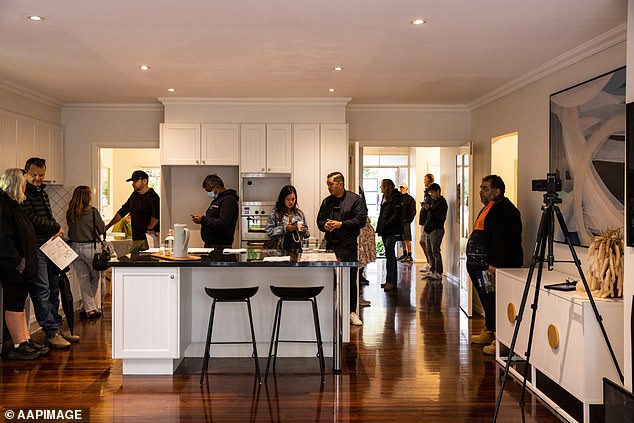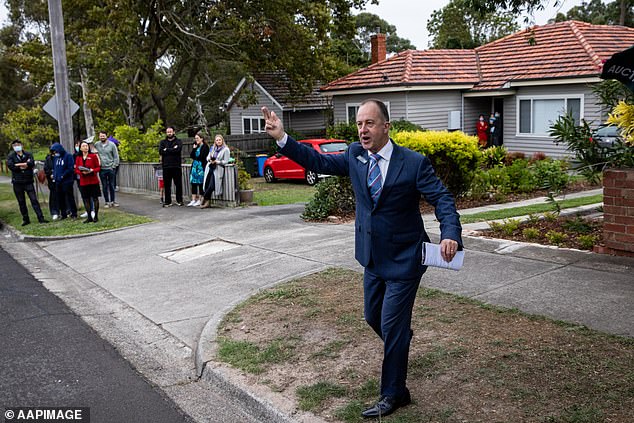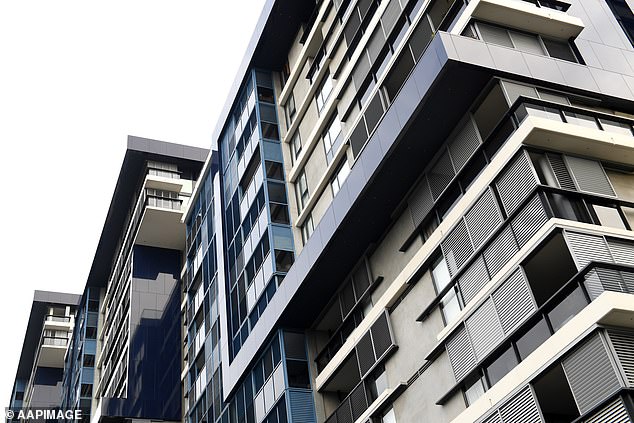Australians hoping to get on the property ladder are in for some bad news, as new research shows the staggering salary they will need to earn to be able to buy a home in a capital city.
Home ownership in even the smallest capital cities seems out of reach for most Australians, especially younger generations just entering the workforce.
Parliamentary Library data commissioned by the Greens revealed that a borrower would need to earn $164,400 a year, two-thirds more than the average salary of $98,218.
That means the average salary would have to increase by 67 per cent for Australians to comfortably afford a home in the current market.
Max Chandler-Mather, the Greens’ housing spokesman and leader of the movement to remove negative tax breaks for investor landlords and the 50 per cent capital gains tax discount, shared the data last week.

New research has shown the wages Australians living in capital cities must earn (pictured) to be able to afford a median-priced home.


Parliamentary Library data, commissioned by the Greens, found a borrower would need to earn $164,400 a year to avoid mortgage stress.
“Buying a home has become an impossible dream for too many people,” he wrote.
The research found that an Australian looking to buy a median-priced home in Brisbane would need to earn $178,090 to avoid mortgage stress.
A homeowner is considered under mortgage stress when their payments exceed 30 percent of their income.
Sydneysiders looking to buy a median-priced home would need to earn $293,578 a year, putting them in the top 1.5 per cent of Australians, while Melburnians need a salary of $189,962.
Prospects were not much better in Australia’s quieter cities: Adelaide required a salary of $163,627 and Hobart $148,948.
In Perth, a salary of $140,313 is required and people hoping to buy in Darwin, Australia’s most affordable market with a median price of $577,786, still require a salary of $124,339.
In Canberra, a salary of $205,073 is needed to buy a median-priced home of $967,671.
Many Australians feel the staggering figures have only confirmed their fears – that they will never be able to afford their own home – and many blame tax incentives for investors.


Many Australians felt the daunting figure only confirmed their fears: that they will never be able to afford to own their own home in a city.
One wrote: ‘This is a problem. Multiple factors include population growth. Low offer. Subsidies for home buyers that boost demand in the face of low supply.
‘There is also the problem of tax exemptions. Homes are treated as investments. Homeowners get tax breaks like negative gearing and deductions.
‘With all those incentives, it is foolish not to invest in houses, the rich get richer.
‘A significant part of politicians, more than 50 percent, own several houses. Labor and the Liberals are too afraid to make significant changes to taxation.’
Several other commentators blamed investors for purchasing properties in previously affordable markets, causing housing shortages and skyrocketing prices.
“The only way to solve this crisis is if Labor finally works with the Greens to phase out the massive tax breaks for property investors, such as negative gearing, which are denying millions of renters the opportunity to buy a home.
“The only way to solve this crisis is if Labor finally works with the Greens to phase out the massive tax breaks for property investors that deny millions of renters the chance to buy a home,” Mr Chandler-Mather said.
However, hundreds of Australians who shared their thoughts online encouraged politicians to crack down on migration.
The Greens did not mention population growth in their press release.
“Immigration has created such a demand for housing (Mr. Chandler-Mather), why can’t he talk about this?” one commenter wrote.
Population growth is at the highest level since the early 1950s, with a record 548,800 migrants moving to Australia in the year to September.


The only affordable properties for people on below-average incomes who want to avoid mortgage stress are units in more remote capital cities.
House prices in the capital rose 11 per cent in the year to February, CoreLogic data showed.
This came even after the Reserve Bank in November raised interest rates for the 13th time in 18 months to a 12-year high of 4.35 per cent.
The only affordable properties for people on below-average incomes who want to avoid mortgage stress are units in more remote capital cities.
A salary of $94,981 would buy an apartment in Perth, where the average price is $482,972.
A salary level of $83,648 would buy one Darwin unit, where $367,951 is the midpoint.
